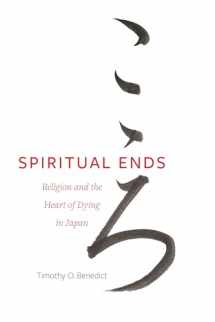
Spiritual Ends: Religion and the Heart of Dying in Japan (New Interventions in Japanese Studies) (Volume 4)
Book details
Summary
Description
A free open access ebook is available upon publication. Learn more at www.luminosoa.org.
What role does religion play at the end of life in Japan? Spiritual Ends draws on ethnographic fieldwork and interviews with hospice patients, chaplains, and medical workers to provide an intimate portrayal of how spiritual care is provided to the dying in Japan. Timothy O. Benedict uses both local and cross-cultural perspectives to show how hospice caregivers in Japan are appropriating and reinterpreting global ideas about spirituality and the practice of spiritual care. Benedict relates these findings to a longer story of how Japanese religious groups have pursued vocational roles in medical institutions as a means to demonstrate a so-called “healthy” role in society. By paying attention to how care for the kokoro (heart or mind) is key to the practice of spiritual care, this book enriches conventional understandings of religious identity in Japan while offering a valuable East Asian perspective to global conversations on the ways religion, spirituality, and medicine intersect at death.


We would LOVE it if you could help us and other readers by reviewing the book
Book review



